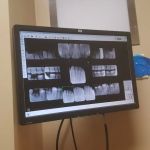What Are the Risks of Cosmetic Dental Surgery?
- 1. Introduction to Cosmetic Dental Surgery
- 2. Potential Risks of Cosmetic Dental Surgery
- 3. Common Complications After Cosmetic Dental Procedures
- 4. How to Minimize the Risks of Cosmetic Dental Surgery
- 5. Key Tips for Consulting a Cosmetic Dentist
1. Introduction to Cosmetic Dental Surgery
Cosmetic dental surgery has become increasingly popular as individuals look for ways to improve their smiles. From teeth whitening to more complex procedures like veneers or implants, cosmetic dental surgery offers a variety of solutions to enhance the appearance of your teeth. However, like any surgical procedure, there are risks involved that you should be aware of before going under the knife. In this article, we will explore the potential risks of cosmetic dental surgery and provide insights on how to make informed decisions for your dental care.
2. Potential Risks of Cosmetic Dental Surgery
While cosmetic dental surgery can greatly improve the aesthetic appearance of your smile, it is important to understand that all surgical procedures come with some risks. Here are the primary risks you should consider:
- Infection: As with any surgical procedure, there is a risk of infection. The mouth is full of bacteria, so proper hygiene and aftercare are essential to avoid complications.
- Allergic Reactions: Some patients may have allergic reactions to materials used in dental procedures, such as fillings, implants, or anesthesia. Always inform your dentist of any allergies beforehand.
- Tooth Sensitivity: After certain procedures like teeth whitening or veneers, some individuals experience heightened tooth sensitivity, which can be uncomfortable.
- Jaw or Nerve Damage: While rare, there is a potential for nerve damage or jaw injury during dental surgery, especially with more invasive procedures like implants or jaw realignment.
3. Common Complications After Cosmetic Dental Procedures
After undergoing cosmetic dental surgery, it’s important to be aware of common complications that may arise. These include:
- Swelling and Bruising: Swelling is a common side effect following dental surgery. While this is usually temporary, it can cause discomfort and should be managed with ice packs and anti-inflammatory medications.
- Bleeding: Some bleeding is normal after certain dental surgeries, particularly after tooth extractions or gum surgeries. It should stop within a few hours, but excessive bleeding may require medical attention.
- Delayed Healing: In some cases, healing may take longer than expected, especially if there are complications like infections or if the patient has other health issues that slow the healing process.
4. How to Minimize the Risks of Cosmetic Dental Surgery
Although there are risks involved, there are steps you can take to minimize them and ensure a successful outcome. Here’s how to reduce the risks:
- Choose an Experienced Dentist: The success of cosmetic dental procedures largely depends on the skill and experience of the dentist. Be sure to research and choose a reputable dentist with experience in the specific procedure you're considering.
- Follow Pre- and Post-Surgery Instructions: Your dentist will provide specific instructions for before and after surgery. This may include advice on eating, oral hygiene, and medication to prevent infection. Following these instructions is key to a smooth recovery.
- Communicate About Health Conditions: Make sure your dentist knows about any existing medical conditions that could affect your recovery or the outcome of the surgery, such as diabetes or heart disease.
5. Key Tips for Consulting a Cosmetic Dentist
Before committing to any cosmetic dental surgery, it’s essential to have a detailed consultation with your dentist. Here are some things to keep in mind:
- Ask About Your Risks: Don’t hesitate to ask your dentist about the specific risks of the procedure you’re considering. A good dentist will provide a clear explanation and discuss any potential complications with you.
- Review Before-and-After Photos: Ask to see before-and-after photos of previous patients who underwent the same procedure to ensure you're comfortable with the expected results.
- Understand the Cost: Make sure you understand the full cost of the procedure, including any follow-up appointments or potential touch-up work that might be necessary after surgery.
If you're considering cosmetic dental surgery, make sure to consult with a trusted professional to weigh the risks and benefits. For more information on how to choose the best dentist for your needs, visit Dentistry Toothtruth.







 Freeport Kids Dental & Orthodontics4.0 (235 review)
Freeport Kids Dental & Orthodontics4.0 (235 review) Palo Alto Orthodontics5.0 (249 review)
Palo Alto Orthodontics5.0 (249 review) Michael Tabbah, D.M.D.5.0 (2 review)
Michael Tabbah, D.M.D.5.0 (2 review) Innovate Dental4.0 (142 review)
Innovate Dental4.0 (142 review) Judah Garfinkle, D.M.D., M.S.3.0 (3 review)
Judah Garfinkle, D.M.D., M.S.3.0 (3 review) West Coast Dental of South Gate3.0 (495 review)
West Coast Dental of South Gate3.0 (495 review) The Importance of Oral Health Education During Pregnancy for a Healthy Pregnancy
The Importance of Oral Health Education During Pregnancy for a Healthy Pregnancy Best Tips for Brushing Your Teeth Properly for Healthy Gums: Essential Techniques for Oral Health
Best Tips for Brushing Your Teeth Properly for Healthy Gums: Essential Techniques for Oral Health Why Skipping Dental Checkups Can Lead to Bigger Oral Health Problems
Why Skipping Dental Checkups Can Lead to Bigger Oral Health Problems Advantages of Porcelain Dental Restorations
Advantages of Porcelain Dental Restorations How Can Diabetes Cause Tooth and Gum Problems? Preventing and Managing Oral Health Issues
How Can Diabetes Cause Tooth and Gum Problems? Preventing and Managing Oral Health Issues Healthy Habits for Promoting Good Oral Health and Hygiene: Tips for a Healthy Smile
Healthy Habits for Promoting Good Oral Health and Hygiene: Tips for a Healthy Smile